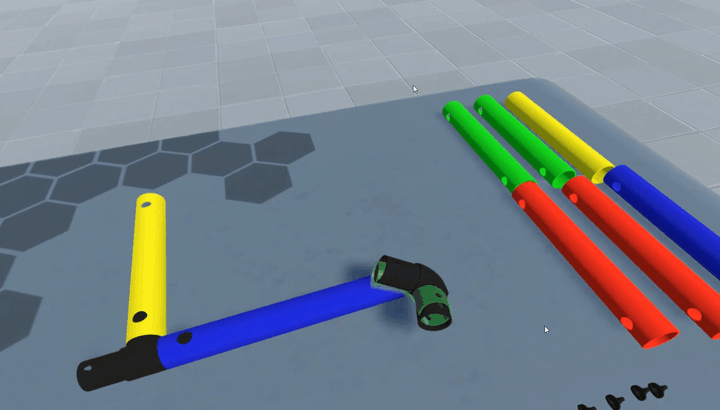Identifying Virtual Reality Users Across Domain-Specific Tasks: A Systematic Investigation of Tracked Features for Assembly

Abstract
Recently, there has been much interest in using virtual reality (VR) tracking data to authenticate or identify users. Most prior research has relied on task-specific characteristics but newer studies have begun investigating task-agnostic, domain-specific approaches. In this paper, we present one of the first systematic investigations of how different combinations of VR tracked devices (i.e., the headset, dominant hand controller, and non-dominant hand controller) and their spatial representations (i.e., position and/or rotation as Euler angles, quaternions, or 6D) affect identification accuracy for domain-specific approaches. We conducted a user study (n = 45) involving participants learning how to assemble two distinct fullscale constructions. Our results indicate that more tracked devices improve identification accuracies for the same assembly task, but only headset features afford the best accuracies across the domain specific tasks. Our results also indicate that spatial features involving position and any rotation yield better accuracies than either alone.